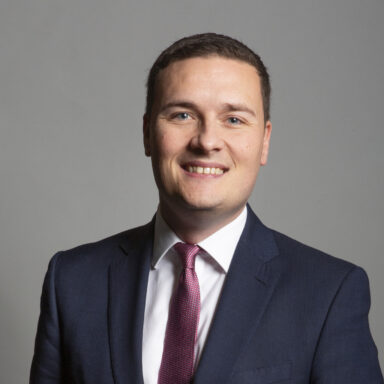
Health and social care prevention matters as much at end of life as early years - here is why


This is about … a shift in the centre of gravity out of the hospital into the community — primary care, community health services, mental health, and social care. A shift from a service that’s overly focused on treating sickness to a … focus on preventing illness in the first place.
Wes Streeting MP, Secretary of State for Health & Social Care, speaking at the Tony Blair Institute for Global Change, July 2024
Having worked in the NHS most of my professional life, I know just how hard it is to focus on prevention when there are so many fires to put out. You know what you want to do, you know what you need to do and yet there are so many disincentives in the way: 12-month planning cycles; centrally driven operating plan targets that are unachievable; the thankless quest for ‘cashable savings’; non-recurrent funding that results in “pilotitus”; I could go on …
That’s why I joined Social Finance. I wanted to find a different way to shift from crisis to prevention. I saw the potential of using finance as a tool to bring people together and align incentives around outcomes that matter to people.
Having never previously worked with an organisation like Social Finance, I was sceptical, but without question, the support understanding and help that has been given has been outstanding. All staff who have engaged with us have shown a clear understanding of the vision that we had and also understood the local landscape
Steve Barnes, Hillingdon Health and Care Partners
For the last 10 years Social Finance has been working in partnership with the NHS to pioneer a new type of transformation using outcomes based social investment.
Our focus has been on providing “preventative” end-of-life-care services. Which might sound counterintuitive, until you think about how enabling people to die in the place they prefer, with the care and support they require, can prevent so many unpleasant outcomes, for example, unnecessary pain and distress for patients; the chaos and stress of multiple unplanned hospital admissions or lack of appropriate medical support for someone dying at home.
There is a spectrum of prevention that starts at birth and continues to the end of life – it’s not just about blood pressure or obesity (important as these are!) And the fact remains that in our last year of life we use most NHS resources. But the “preventative” end-of-life-care that could reduce those costs has been chronically underfunded.
To help address this we have:
mobilised 18 new end-of-life-care services across the UK including in Oxfordshire, Bradford, and the Highlands in Scotland
reduced unplanned bed days by over 30,000 – that’s equivalent to three hospital wards.
raised development grant funding and investment to support over £40M of service costs and created a national learning community
supported over 30,000 people to achieve better outcomes and given over 100 frontline workers the headspace to make change happen
How did we do it?
The service has been invaluable in meeting the care and support needs of the dying person, but it has also been a support service for psychological needs at the most difficult of times for families.
Barbara van Brummen, Nurse Team Leader, Hillingdon Community Specialist Palliative Care Team
Case Study — the London Borough of Hillingdon Single Point of Access (SPA), Your Life Line (YLL) and Palliative Overnight Service (POS)
Our phenomenally successful collaboration on Your Life Line (YLL), a 24-hour end-of-life-care service in Hillingdon in North West London, is a shining example of how this hybrid social investment model allows innovative services to be set up that otherwise would never see the light of day. These services not only prevent unnecessary hospital admissions but also free up the capacity to deal with other issues, such as cancer treatment or surgery.
A national survey published by the ONS in 2016 found that although the majority of people (81%) would prefer to die at home, with only 3% preferring to die in hospital; hospital was the most common place of death with 46.9% of deaths occurring there.
In Hillingdon, a lack of community-based support for end-of-life care was particularly acute, resulting in unplanned hospital activity and emergency admissions, and a higher-than-average number of deaths — 54.3% — taking place in hospital.
But the biggest concern was that too many people were not having a “good” death – one that ideally takes place in their preferred location, free from unnecessary pain and with the best most appropriate care and support.
Your Life Line 24/7 (YLL) was proposed as a solution to meet the overnight needs of these patients and to offer the advice and coordination required. YLL aimed to improve access to palliative and EOL nursing support and advice through a rapid flexible Single Point of Access (SPA) and Palliative Care Overnight Nursing Service (PONS).
- The service was financed using a Social Impact Bond (SIB) for a period of three years from 1st Sep 2018 – 31st Aug 2021.
- The investment (£900, 000) was made by the Care & Wellbeing Fund — a £12 million pound fund set up and overseen by Social Finance, with a development grant from The Health Foundation, investment from Better Society Capital and Macmillan Cancer Support – and ‘top up’ funding from the National Lottery’s Commissioning Better Outcomes Fund.
- The Social Impact Bond was overseen by Social Finance.
The aim was to improve people’s quality of life in the last 12 months of life and increase the number of people who ‘die’ well through system incentives.
The partnership brought together:
- Hillingdon Clinical Commissioning Group (CCG) commissioned the service and made payments back to the fund based on outcomes achieved
- Central and North West London NHS Foundation Trust — who delivered the service
- Hillingdon Health and Care Partners (HHCP) is a coalition of hospital services, GPs and community and voluntary services, including Harlington Hospice and Hillingdon Carers – who made referrals to the service
We now have a functioning Single Point of Access that without Social Finance would, in my opinion, not have been achieved either from a financial or timing perspective.
Liz Bunker, Lead Nurse, End of Life Care, Hillingdon Hospital
Social investment enabled a rapid response service to provide care in the community, while simultaneously answering what mattered to patients. The service provided 2,275 people in Hillingdon with rapid care and meant that of the 1908 people who died, 93% were able to die in their preferred place, and 91% achieved death at home, compared to a national average of 50%.
Not only did YYL improve outcomes for people and their families, but it also significantly reduced system pressures by increasing planned, community-based care. In fact, the service reduced hospital bed days by over £3.5M against service costs of £1.8M, providing great value for money.
The success of the Hillingdon YLL service meant it was commissioned beyond the three life of the investment and is now embedded permanently in the system landscape.
It also demonstrated that social investment is a powerful tool in supporting the much-needed shift to prevention and community for delivering sustainable health transformation. It led to the launch of the Macmillan End of Life Care Fund being set up, with resulting new EOLC services in Bradford, the Highlands and Oxford.
Next Steps
I am confident that this approach can be replicated across other areas of health and social care and that the NHS is up for it, but it requires the following:
Yes, the two can co-exist. You can focus on prevention and create system value. The key is to understand what “good” looks like for communities and health systems. In end-of-life care some people prefer to die at home, while others need different types of care. But where they are cared for depends on their own preferences and the unique service landscape. For some health systems, better end-of-life care means fewer escalation wards opening, for others it means additional elective capacity. To make a real impact, we must tailor our solutions to these unique needs. The one-size-fits-all model doesn’t work.
Innovators within financially challenged health systems deserve respect and recognition. We should do more than just fund good ideas; it should celebrate and encourage innovation. By reinvesting outcomes and supporting innovation, we can further reward those who drive change. The future of scaling is about diversity and customisation. We need Government to willingly relinquishes control.
NHS clinicians and managers have many great ideas to improve patient care and create efficiencies. But it is disincentivising when improvements are only valued if they’re cash-saving and only reduce the deficit by a tiny margin. While working in the NHS I have also been in the position of having to demonstrate a cash releasing saving of x 3 by the end of month 1 which seems a little mad! At the same time, The Hewitt Review called for 1% of the NHS budget to focus on prevention, while acknowledging there is no new money to support this shift.
NHS leadership knows this is the right thing to do, but there is little opportunity to invest, test, and learn. Social investment can provide a much-needed injection of multi-year funding to help systems shift the dial towards prevention, without the dreaded double running costs. The risk is taken by the investors, with the NHS only paying once success is demonstrated and value created.
Most exciting of all we’re now turning our attention to the very start of life where there are also huge inequalities and a need for prevention, as we collaborate with Oxford University Hospitals NHS Trust to develop a new Maternity Transformation Fund.
Look out for the second blog in our series focusing on social investment in health and social care later this week.
What to find out more?
To learn more about our work in social investment in health and social care contact Katy Saunders, Director of Health and Social Care at Social Finance at katy.saunders@socialfinance.org.uk
Find out more
